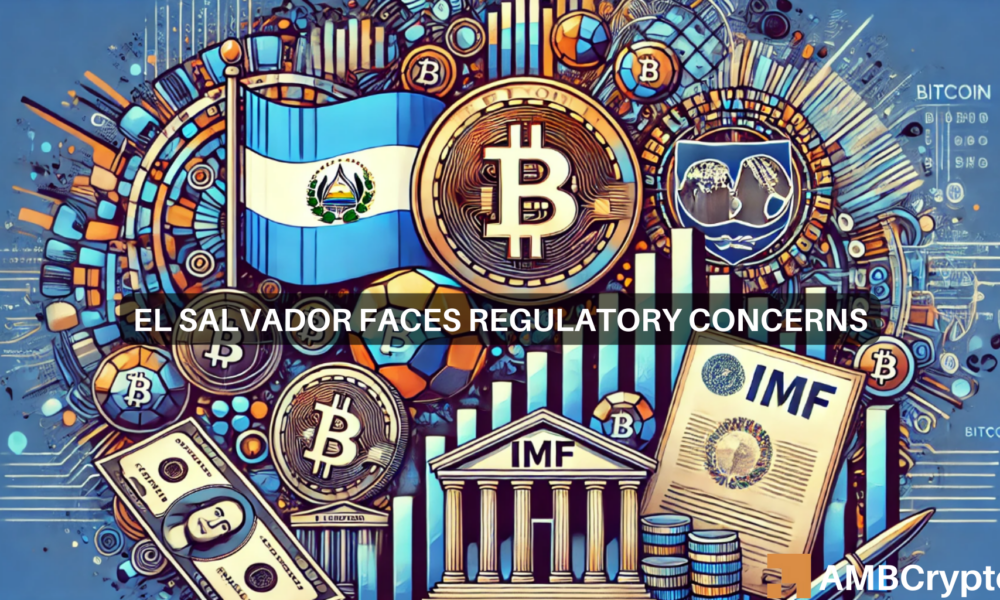The IMF has urged El Salvador to tighten its regulations concerning the use of Bitcoin, especially in its integration with traditional financial systems.
Main Areas of Concern
The IMF has expressed significant concerns regarding the absence of measures to combat money laundering and financial crimes. IMF officials have emphasized the necessity of robust regulatory frameworks to deter illicit activities linked to Bitcoin.
They argue that without more stringent regulations, El Salvador could come under increased scrutiny from international financial bodies.
Another critical issue is the potential impact on public finances. The IMF has highlighted that the fluctuations in Bitcoin’s value could adversely affect the government’s ability to manage its fiscal obligations. An IMF representative remarked during a briefing that “Bitcoin’s price volatility presents challenges for fiscal policies and debt sustainability.”
The IMF has also underscored the importance of protecting consumers, warning about the risks of citizens losing money due to the unpredictable nature of Bitcoin. An IMF spokesperson emphasized the necessity of safeguarding consumers when dealing with such a volatile asset.
El Salvador’s Response
Despite the IMF’s concerns, the government of El Salvador remains hopeful about the potential advantages of Bitcoin. President Nayib Bukele has consistently lauded Bitcoin as a means of promoting financial inclusivity.
He contends that it could assist the unbanked population and decrease dependency on the U.S. dollar. Bukele recently stated in a public speech, “Bitcoin provides us with financial autonomy.”
Nevertheless, the government has indicated a willingness to address some of the IMF’s worries. Finance Minister Alejandro Zelaya mentioned, “We are prepared to engage in discussions with the IMF,” acknowledging that adjustments to Bitcoin regulations might be needed to ensure stability.
Implications Across Industries
The IMF’s call for regulatory revisions in El Salvador could have significant repercussions for the global cryptocurrency sector. If El Salvador enforces stricter regulations, other nations might also follow suit, especially those contemplating the adoption of Bitcoin.
An analyst in the cryptocurrency field remarked, “The IMF’s position could establish a worldwide standard,” potentially slowing down the acceptance of Bitcoin in developing countries.
Furthermore, more stringent regulations could drive advancements in compliance technologies within the cryptocurrency sector. A rise in startups developing tools for financial transparency and adherence to regulations is likely.
A blockchain specialist noted, “There is an increasing need for cryptocurrency firms to adjust to regulatory demands.”
In conclusion, the IMF’s insistence on El Salvador could trigger a shift in regulations affecting the entire cryptocurrency landscape. Whether this will hinder or hasten Bitcoin adoption on a global scale remains uncertain.

